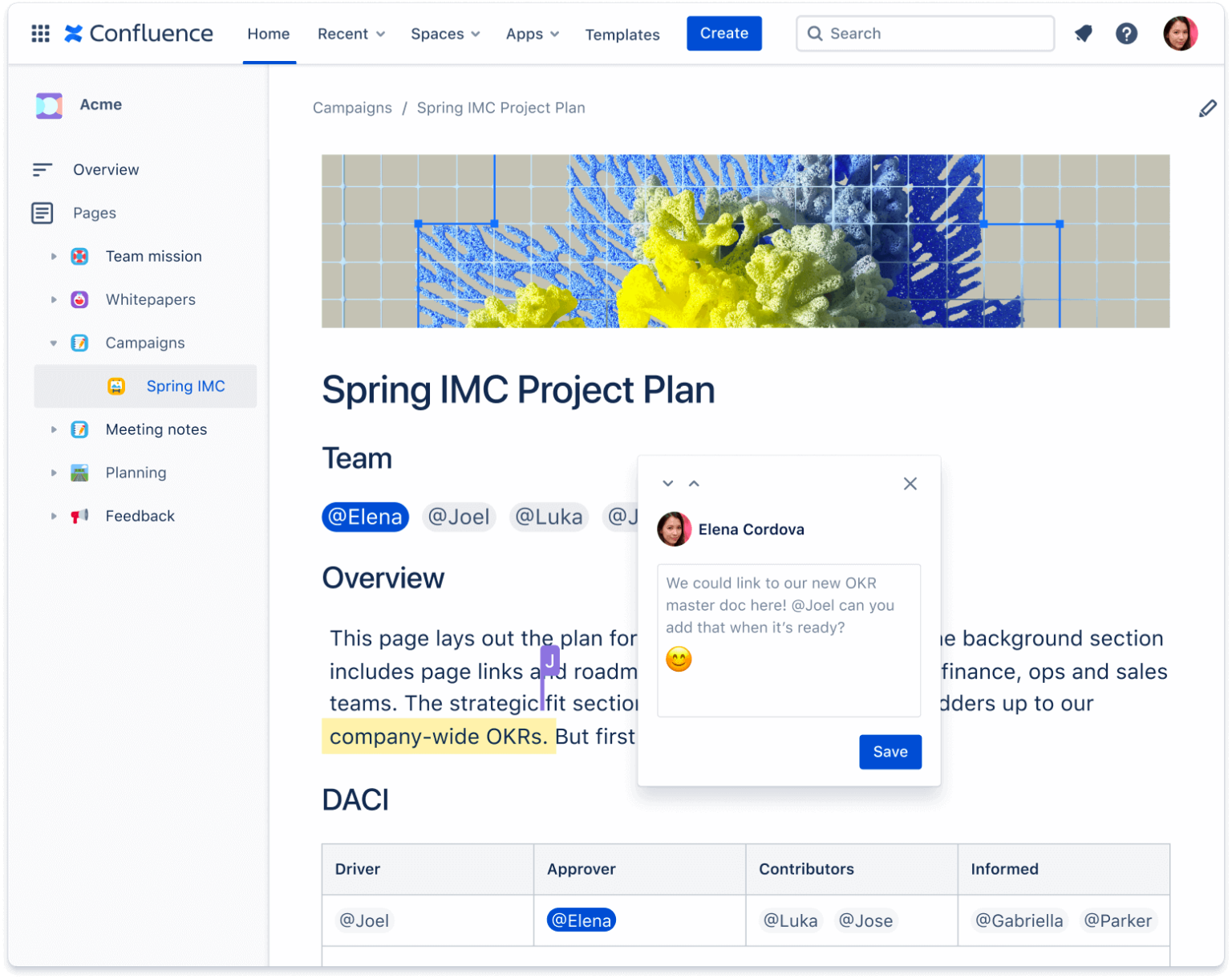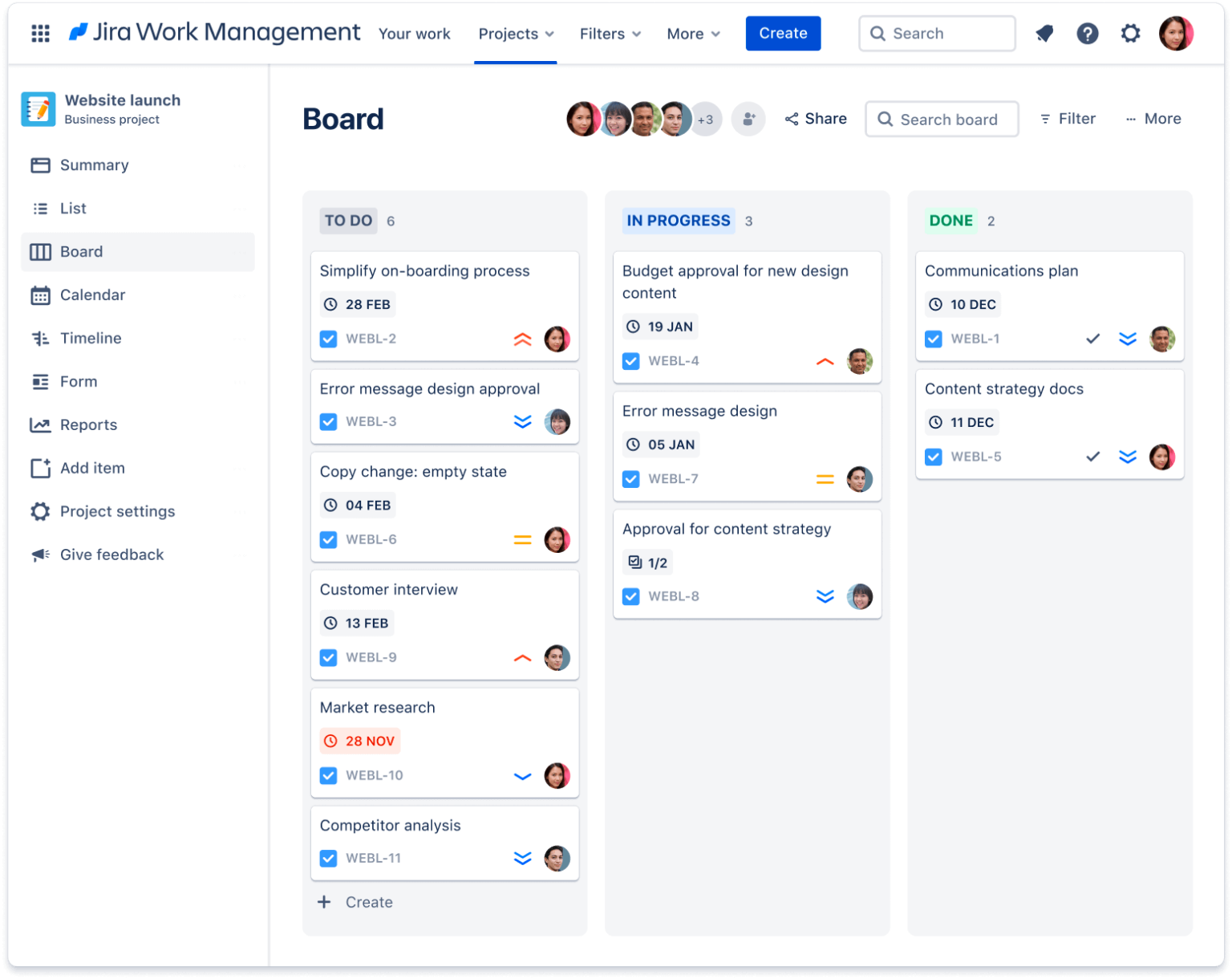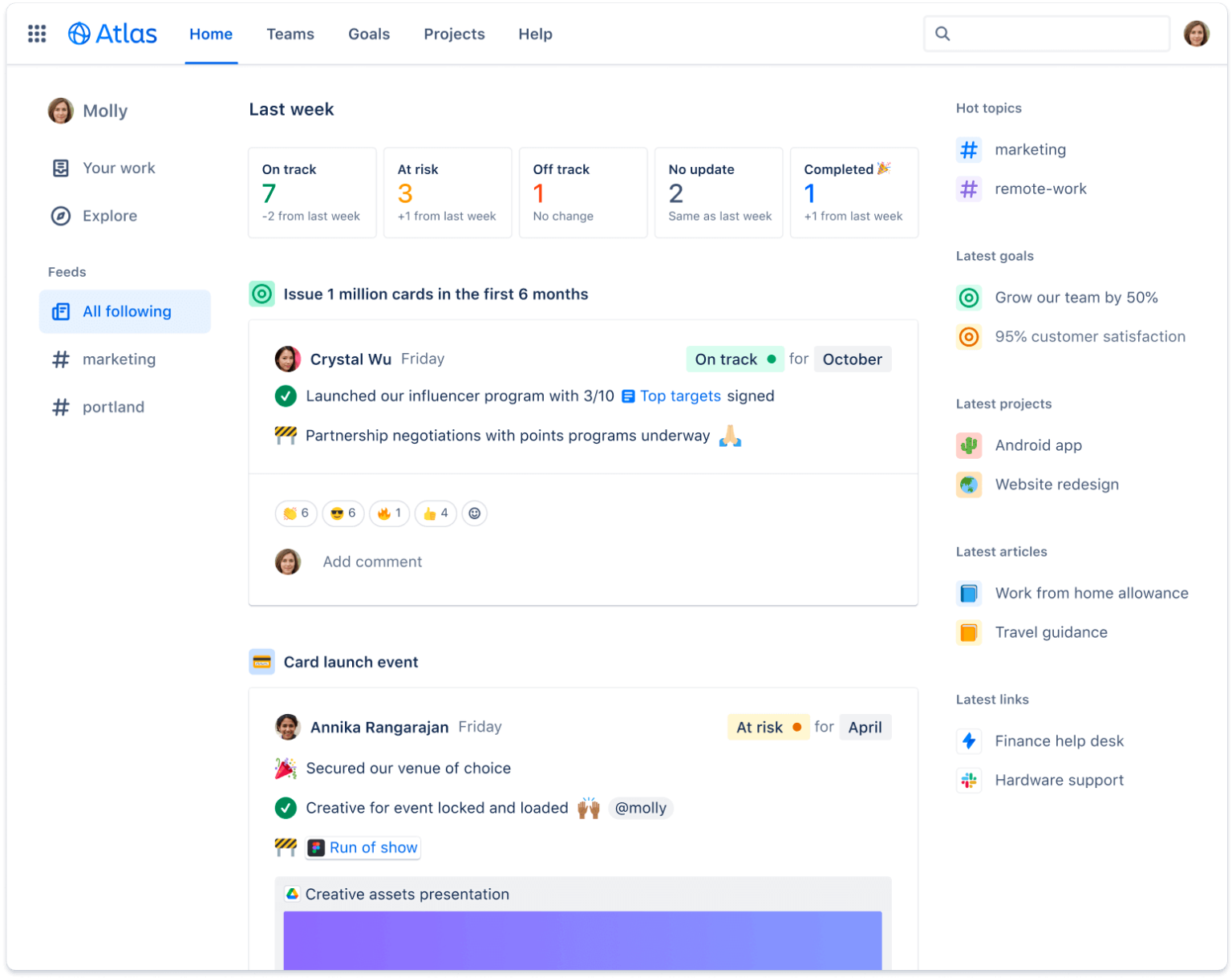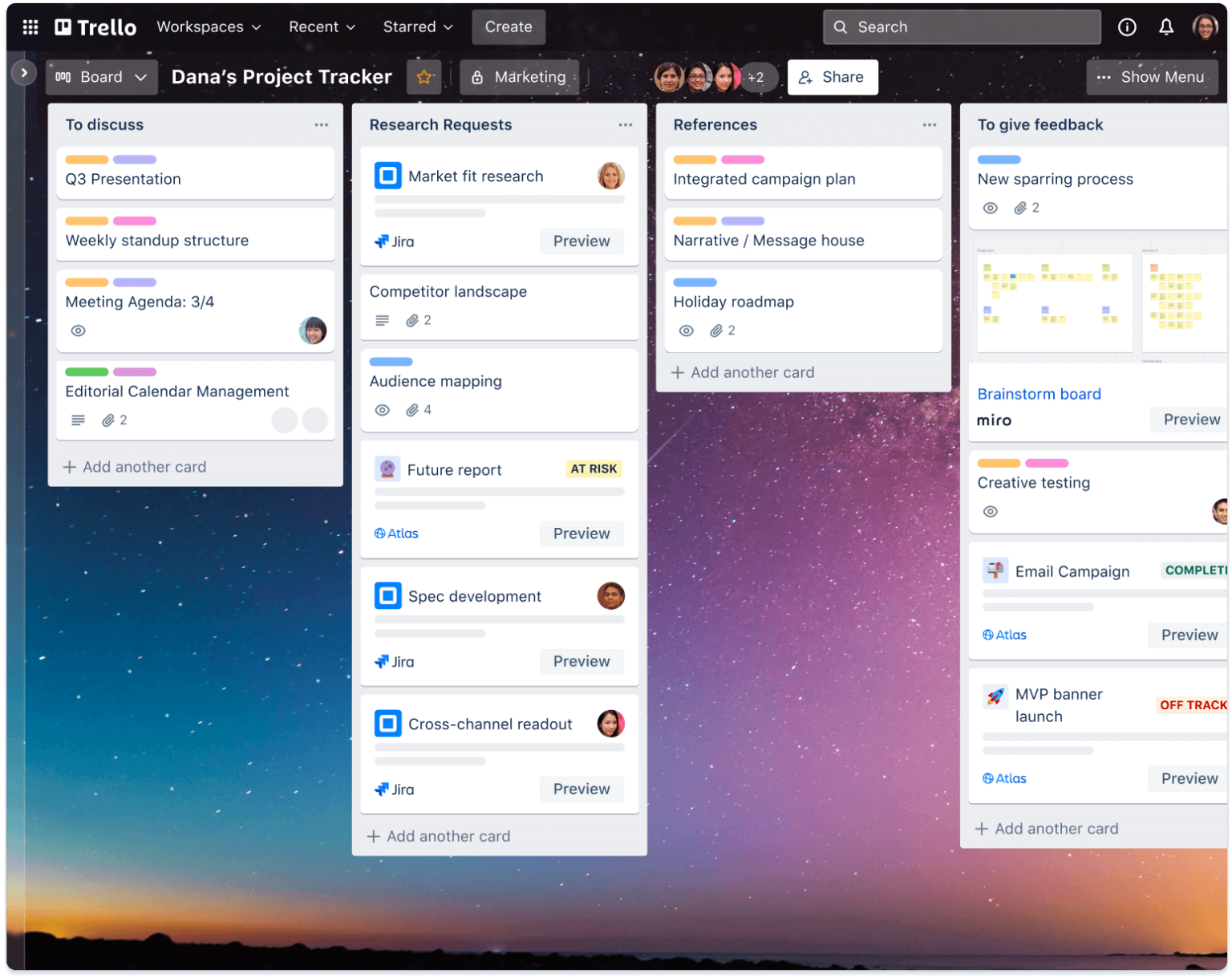It has now been approximately three years since the pandemic fundamentally changed the world of work across various areas and industries. As it turns out, this shift towards greater flexibility seems to be a lasting change. According to data from Atlassian's 2022 State of Teams report:
- 22% of the surveyed teams work entirely remotely
- 35% have returned to working solely in shared offices
- 43% are adopting hybrid models
This means that around two-thirds of all teams have departed from the traditional approach, with a notably high percentage of hybrid teams. These circumstances raise intriguing questions about the future of work, and the State of Teams report provides us with some statistics to consider.
Teams with Spatial Flexibility View the Company More Positively
It comes as no surprise that employees have a better and more comfortable experience in companies that provide them with the necessary work flexibility. Remote work has gained significant popularity - to the extent that the ability to work from home has almost become a mandatory requirement for job seekers when evaluating potential employers.
The State of Teams report reveals that 83 percent of teams benefiting from some level of flexibility hold a positive view of the company and its future. In contrast, this figure is only 47 percent for face-to-face teams.
However, workplace flexibility doesn't necessarily mean having exclusive remote work setups. For flexible work models to thrive, they also require the option to convene and collaborate in person. On the other hand, for many teams, the office offers better opportunities for socializing and coordinating face-to-face with colleagues. While virtual interactions can serve this purpose, they ultimately cannot replicate the dynamics of an in-person conversation.
Hybrid workplaces offer teams a choice. Certain tasks demand focus and extended periods of concentration, making home office more suitable than a bustling workplace. On different occasions, going into the office to work could prove to be a better option, especially for in-person interactions.
Modern organizations require software solutions that effectively cater to both of these scenarios. Software should facilitate seamless human connections and at the same time promote empowerment and engagement. A work management suite, such as Atlassian Together, can help centralize digital team collaboration within products, and be as flexible as today’s work models.
Teams with Flexible Workplaces Perceive Themselves as More Innovative
A surprising revelation from the report is that distributed teams appear to have more space for innovation compared to face-to-face teams. About 71 percent of teams with at least some degree of flexibility consider themselves innovative, whereas this number is only 57 percent for face-to-face teams.
This raises one or two questions because continuously delivering innovations can be a challenge in distributed scenarios that often even cross time zones. Face-to-face sessions in front of a whiteboard and spontaneous conversations at the coffee machine are not easily replaced by digital means.
Accordingly, the company is challenged to provide processes and tools that support innovation in flexible scenarios. In doing so, each organization must experiment to create the best conditions for its unique requirements under which teams can develop ideas, initiatives, and innovation projects.
Atlassian's popular Team Playbook offers several suggestions in this realm, such as crafting Working Agreements to identify teams' procedural needs or conducting Work Life impact workshops designed to comprehend teams' cultural requirements.
Teams Believe Flexible Working Promotes Transparency
63 percent of participants from the State of Teams report say they have visibility into organizational decisions. So the changing landscape of work doesn't seem to be affecting transparency in organizations. But with transparency comes the responsibility to ensure that all voices are heard (and not just the loudest).
So there must be ways to involve team members in decision-making. What might these look like? There are many options and tools available here - from surveys to public discussions in digital systems to company-wide voting. Tools such as the all-hands meeting, as suggested by the Team Playbook, are also particularly suitable for hybrid environments in order to make all opinions heard.
Teams with Greater Workplace Flexibility Spend More Time in Meetings
This aspect is problematic and alarming. If a team works remotely, chances are high that it holds more synchronous meetings than a face-to-face team. State of Teams expresses this in concrete numbers: Remote teams sit in meetings three hours longer each week than traditional office teams.
This is dangerous from many points of view: synchronous communication is often inefficient or even ineffective, productive activities suffer as a result, and the regular additional time required for meeting overkill harbors the risk of psychological stress and even burnout. Organizations should therefore be interested in reducing the number of meetings in remote and hybrid teams.
The Atlassian software suite is a powerful weapon in the fight against meeting overload because it promotes effective and efficient asynchronous communication. But it's rarely enough to simply deploy the software and sit back. At the same time, a culture must be created in which asynchronous communication is seen as something desirable and meaningful.
In this context, it can be useful to regularly put team rituals to the test and perform Ritual Resets. This tool is used to examine the team's meetings and processes in the group and then agree on what should stay the same, what should be improved, and what should be dropped.
Modern Team Software for Modern Workplaces
When flexible workplaces are the new standard in the enterprise, the organization's team software must reflect this evolution and support the new collaboration culture. Atlassian Together is a suite that bundles Atlassian's best-in-class collaboration tools into one package that addresses all the key use cases of distributed teams: transparent project and task management, centralized knowledge management, asynchronous collaboration, and voting.
Atlassian Together includes the following solutions:
Confluence is the wiki and social collaboration system for cross-team collaboration on content and central mapping of corporate knowledge.
Jira Work Management is aimed at larger teams with structured workflows that need to systematically manage their projects, tasks, and processes.
Atlas is the new teamwork portal to drive alignment by making teams, work, and goals visible and communicated across the organization.
Trello is used in distributed teams to manage and organize tasks, meetings, brainstorming sessions, etc.
Access is the security gateway to Atlassian's cloud solutions and is used as a user and access management tool.
For companies that embrace flexible workplaces and distributed teams as a manifestation of modern work culture, software solutions like Atlassian Together are a key building block. They have what it takes to reduce meeting overload, bring team members close together despite physical distance, and make effective and transparent asynchronous collaboration the norm.
Do you have questions about the products bundled in Atlassian Together? Do you want to know more about the Atlassian Cloud and its potential for teams in your organization? Or does your organization need help moving from legacy server solutions to the cloud? Our Atlassian experts will be happy to talk to you, so please get in touch!






